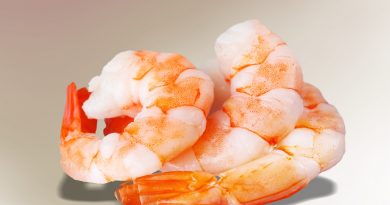10 Common Food and Nutrition Myths Busted
Is egg yolk full of cholesterol? Does vitamin C prevent sleep? Should we eat more in winter? Let’s take a closer look at the ten most common food myths:
Myth # 1: Avoid eating egg yolk because of cholesterol
This is one of the most popular food myths!
If the egg actually has lipids which partly responsible for cardiovascular disease, they are much smaller than in many other foods.
It has been shown that foods high in cholesterol but low in saturated fat, such as egg yolk, have minor effects on blood cholesterol levels.
In addition, egg yolk is the most nutritious part of the egg!
Myth # 2: Orange has the most vitamin C
Although oranges contain good amounts of vitamin C, there are other foods that contain even more!
Indeed, guava, pepper (especially red), papaya, kiwi, black currant, Brussels sprout, strawberry and broccoli are richer in vitamin C than orange.
Myth # 3: Sugar makes children hyperactive
If children are more excited when they consume sweets or sodas, it is more related to the context of sugar consumption than sugar in itself.
Research has shown that it is not the sweets that make children hyperactive, but rather the event that led them to consume: family party, outing, birthday parties…
Myth # 4: Frozen vegetables contain less nutrients than fresh ones
Of course, a fresh vegetable that has just been harvested contains more nutrients than a frozen food.
But the longer the time between picking and the time of consumption, the less the vegetable will contain vitamins and minerals.
While if a vegetable is frozen immediately after harvest, it will lose some vitamins in the freezing process, but will still retain the majority of its nutritional qualities. Sometimes frozen vegetables are richer in nutrients than some fresh vegetables.
Myth # 5: To bring calcium to our body, we must drink milk
When you are told calcium you think: milk.
You are not completely wrong since a glass of milk contains about 300 mg of calcium.
However, it would be wrong to think that calcium can only be provided by dairy products since some vegetables, such as black or white beans, Chinese cabbage or spinach also contain good amounts.
Or also found in very good quantities in sardines and salmon.
Myth # 6: Spinach is very rich in iron
Contrary to what Popeye believed, spinach is not the most iron-rich food or anyway, not the best in iron.
Indeed, iron from plants is not best assimilated by the body. It is in offal, red meat, fish and seafood that we find iron called “heme iron”, which is better absorbed by the body than non-heme iron contained in plants.
In equal quantities, it is, therefore, better to consume red meat than spinach to have a good iron intake.
Nevertheless, spinach is one of the richest vegetables in vitamins and minerals: iron, but also folic acid, magnesium, vitamins A, K, B6, manganese and copper.
Myth # 7: Eat richer foods in winter
It was a very good excuse to spend the winter feasting on raclette, tartiflette and other fondues, but unfortunately for gourmands, it is a bad idea!
In fact, in winter you should not eat or eat richer foods than in summer.
First of all, nowadays, we are hardly exposed to extreme cold because our buildings are heated. So we do not need, at first glance, extra calories.
On the contrary, it is better to stock up on vitamins and nutrients to fight against the evils of winter and fatigue!
Myth # 8: Vitamin C prevents sleep
No, if you eat oranges before going to sleep, you will have no more trouble falling asleep!
Besides, you do not stop eating peppers at night! These contain however much more vitamin C than the orange.
In fact, even at high doses, vitamin C does not disturb sleep. In contrast, a good intake of vitamin C, in the long run, fights fatigue.
Myth # 9: Starchy foods need to be removed to lose weight
Even if you are on a diet, it is best to continue to eat starchy foods.
On the other hand, to lose weight, it is better to choose them.
Choose bread, rice and whole pasta rather than refined products, they will allow you to fill up with fiber, you will be more quickly satiated.
And of course, beware of the seasoning! It’s not so much the potatoes that will make you gain weight, but rather the cheese and bacon that go with it!
Myth # 10: It takes several years to digest a chewing gum
Contrary to popular belief, chewing gum does not stick to the stomach and does not stay in our intestines for several years!
It will simply cross the digestive system and be rejected almost intact in the stool a few hours later.




